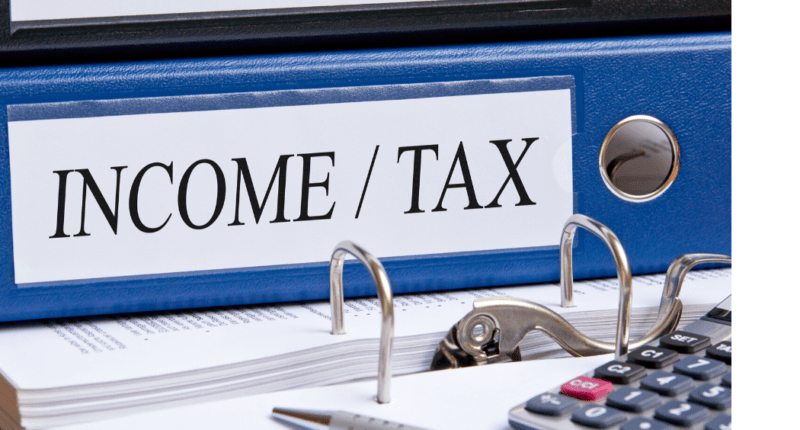The income tax department issued a circular dated 30th June 2021 laying down the guidelines for TDS deduction under section 194Q. These guidelines are given to remove this section’s difficulties and related sections 194-O and 206(1H).
Section 194Q was inserted by the Finance Act 2021, which is applicable from 1st July 2021. Section 194Q applies to a buyer who has a:
- Turnover of more than Rs.10 crore in the previous financial year.
- He purchases goods exceeding Rs.50 lakh of value in a year.
Such a buyer has to deduct TDS at the rate of 0.1% on the amounts exceeding Rs.50 lakh. This section is exactly the opposite of section 206C(1H), where TCS must be collected.
Section 194-O governed the TDS on payments to e-commerce participants and was applicable from 1st October 2020. Under this section, the e-commerce operator has to deduct TDS at 1% at the time of credit of the sale of goods and/or services. The provisions of this section are applicable only when the gross sale of the e-commerce participant in the previous year exceeds Rs.5 lakh.
Section 206(1H) imposes liability on the seller to collect TCS on the sale of goods if the aggregate value of sale exceeds Rs.50 lakh during a financial year. This provision applies to the seller whose gross turnover exceeds Rs.10 crore during the financial year preceding the FY in which the sale is carried out.
CBDT has laid down guidelines for the applicability of section 194Q relevant to 194O and 206C(1H) for the current financial year.
Calculation of threshold for section 194Q for FY 21-22
Accordingly, section 194Q will not become applicable on any sum paid or credited before 1st July 2021.
Also, the threshold of Rs.50 lakh in a year to be calculated starting from 1st April 2021. Hence, if a buyer has paid Rs.50 lakh or more up to 30th June 2021, TDS under section 194Q will apply to all the payments made after 1st July.
Adjustment for purchase return or GST
For TDS calculation under section 194Q, in cases where the GST amount is mentioned separately in the invoice, TDS is to be deducted on the net amount without including GST.
However, TDS would be deducted on the entire amount if it is impossible to identify the amount of GST component to be invoiced in the future.
Also, for tax collection under section 206C(1H), no adjustment of GST is required as the TCS is to be deducted from the total sale consideration.
In case of purchase return where the seller returns the money, the tax deducted may be adjusted against the next purchase against the same seller. Whereas in case the purchase return is replaced by goods, no adjustment is required to be made.
Applicability of section 194Q to non-residents
The TDS provisions of section 194Q will not apply to a non-resident. However, if the purchase is by the non-resident having a permanent establishment in India, then these provisions will be applicable.
Applicability in case of exempt income for the seller
The provisions of these sections will not apply in case the seller’s income is exempt. However, if the seller’s income is only partially exempt, these provisions will apply.
Applicability in case of advance payment
CBDT clarified that as the provisions of these sections apply at the time of payment or credit, whichever is earlier, any advance payment will be subject to the rules of this section.
Cross applicability of section 194-O, 206C(1H), and section 194Q
- If a transaction is pertaining to which TDS has been deducted under section 194-O (TDS by e-commerce operator), that transaction will not be subject to tax deduction under section 194Q.
- The exemption from tax collection at source by the seller under section 204C(1H) is applicable if the buyer has deducted TDS. The circular clarifies that this exemption also extends to the e-commerce operator.
- If a transaction falls within the purview of both sections 194-O and 194-Q, the tax will be required to be deducted under section 194-O. Similarly, if a transaction falls under both sections 194-O and 206C(1H), the tax will be required to be deducted under section 194-O. Further, once the e-commerce operator has deducted tax on a transaction, the seller is not required to collect tax under section 206C(1H). It is clarified that it is the primary responsibility of the e-commerce operator to deduct tax under section 194-O, and he cannot do away with the same even if the seller has collected tax under 206C(1H), which is why the rate of TDS is higher in section 194-O than section 206C(1H).
- Moreover, if the transaction falls under the purview of sections 194-Q and 206C(1H), the tax will be required to be deducted under 194Q. Once the buyer has deducted tax under 194-Q, the seller will not be liable to collect tax under section 206C(1H). However, if before TDS deduction under 194-Q, TCS has been deducted by the seller under 206C(1H), then such transaction would come out of the purview of TDS. This concession is provided since TDS and TCS rates are the same in 194-Q and 206C(1H).
Further, it was clarified that the TDS provisions under this section require the buyer to have a total turnover of Rs.10 crore in the financial year immediately preceding the financial year of purchase of goods. As this condition will not be satisfied in the first year of the business itself, these provisions will not apply in the year of incorporation.
Also, for the threshold of 10 crore turnover, only gross receipts from business carried on by the buyer, turnover or receipts from non-business activity shall not be counted.
Also, many stakeholders represented that they would face difficulties in implementing section 194-Q for exchanges and clearing corporations. CBDT clarified that section 194Q would not become applicable in transactions through recognised stock exchanges and settled by the recognised clearing corporations. Also, these provisions will not apply to transactions in electricity, energy-saving certificates, and renewable energy certificates traded through registered power exchanges.
Click here to download the circular.
For any clarifications/feedback on the topic, please contact the writer at jyoti.arora@cleartax.in

I am a Chartered Accountant by profession with 4+ years of experience in the finance domain. I consider myself as someone who yearns to explore the world through travelling & Reading. I believe, the knowledge & wisdom that reading gives has helped me shape my perspective towards life, career and relationships. I enjoy meeting new people & learning about their lives & backgrounds. My mantra is to find inspiration from everyday life & thrive to be better each day.





